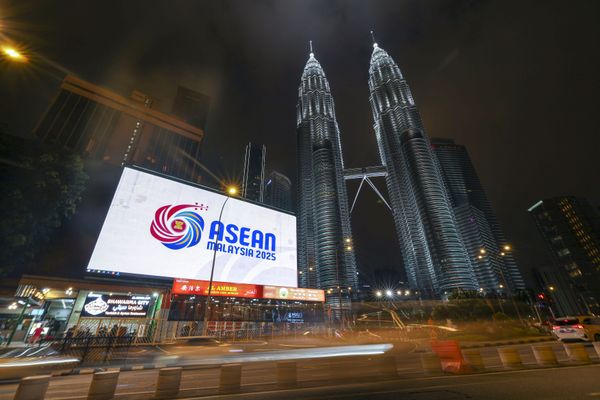By Yasmin Ramlan
KUALA LUMPUR, April 8 — Finance Minister II Datuk Seri Amir Hamzah Azizan has called on Asean to look beyond the region and engage new and existing markets to navigate global economic shifts.
While reaffirming the bloc’s commitment to open trade and regional cooperation, he emphasised the urgent need to reprioritise efforts in response to current challenges without delaying important reforms that are essential for long-term resilience and shared prosperity.
“By creating better trade mechanisms and promoting open trade, we can manage global changes effectively. Over time, the conversation will inevitably return to open free trade, as it has always facilitated global growth.
“We would encourage Asean on how we can make cooperation within Asean stronger together, focus on the cooperation that we have, and look at enabling more trade to occur along the way.
“By doing that, we can continue to create resilience in the system that we can manage,” Amir said during a dialogue session at the Asean Investment Conference 2025 at the Kuala Lumpur Convention Centre today.
On April 2, United States (US) President Donald Trump introduced new tariffs that affected Asean nations, raising import duties on several Southeast Asian countries that are the US's key trading partners.
Cambodia was the hardest hit, facing a basic and reciprocal tariff of 49 per cent, followed by Laos (48 per cent), Vietnam (46 per cent), and Myanmar (44 per cent).
Similarly, Thailand’s tariff stands at 36 per cent, while Indonesia faces 32 per cent. Brunei and Malaysia’s tariffs are 24 per cent each, the Philippines at 17 per cent, and Singapore’s basic tariff is 10 per cent.
He urged Asean to use the current crisis as a catalyst for progress, building greater resilience and moving forward with optimism.
Elaborating further on Malaysia's economic landscape, Amir said the economic framework is already in place, and the execution of plans like the New Industrial Master Plan 2030 will continue.
However, there is a need to reprioritise to cushion the impact of current challenges.
“Use this as a catalyst to move forward with optimism, and let this crisis push Asean to do better and build greater resilience in our system.
“We need to reprioritise certain things to cushion the impact during this challenging period.
“In reprioritisation, some matters may take priority to soften the blow, but you cannot delay reforms. You cannot put off what is necessary and wait for another time,” he said.
Singapore’s Second Finance Minister Chee Hong Tat and Indonesia's Vice Finance Minister Thomas Djiwandono also participated in the dialogue.
During the dialogue, Chee warned that retaliating with tariffs could trigger a global trade war.
He highlighted the importance of opening trade and data flows, enhancing regional collaboration, and acting with urgency to remove barriers and accelerate economic integration.
“I need to emphasise that we must speed up integration and collaboration projects. For a long time, we thought we had the luxury of time and could take gradual steps, but the shock of recent tariffs has created a greater sense of urgency.
“We need to rally our people and companies to take action — deregulate, reduce trade and non-trade barriers, and accelerate integration. If we do not do it now, then when?
“It may be difficult to get all Asean countries to move at the same pace, as we are at different stages of development. But that does not mean we cannot start with bilateral projects or smaller groupings — others can join when they are ready,” Chee said.
Meanwhile, Thomas emphasised the importance of addressing Indonesia's challenges, particularly the 32 per cent tariff imposed by the Trump administration.
The potential impact includes a two per cent decline in exports and a possible decrease in gross domestic product.
He said Indonesia’s goal in engaging with the US is to discuss regional integration within Asean to address these pressing challenges.




